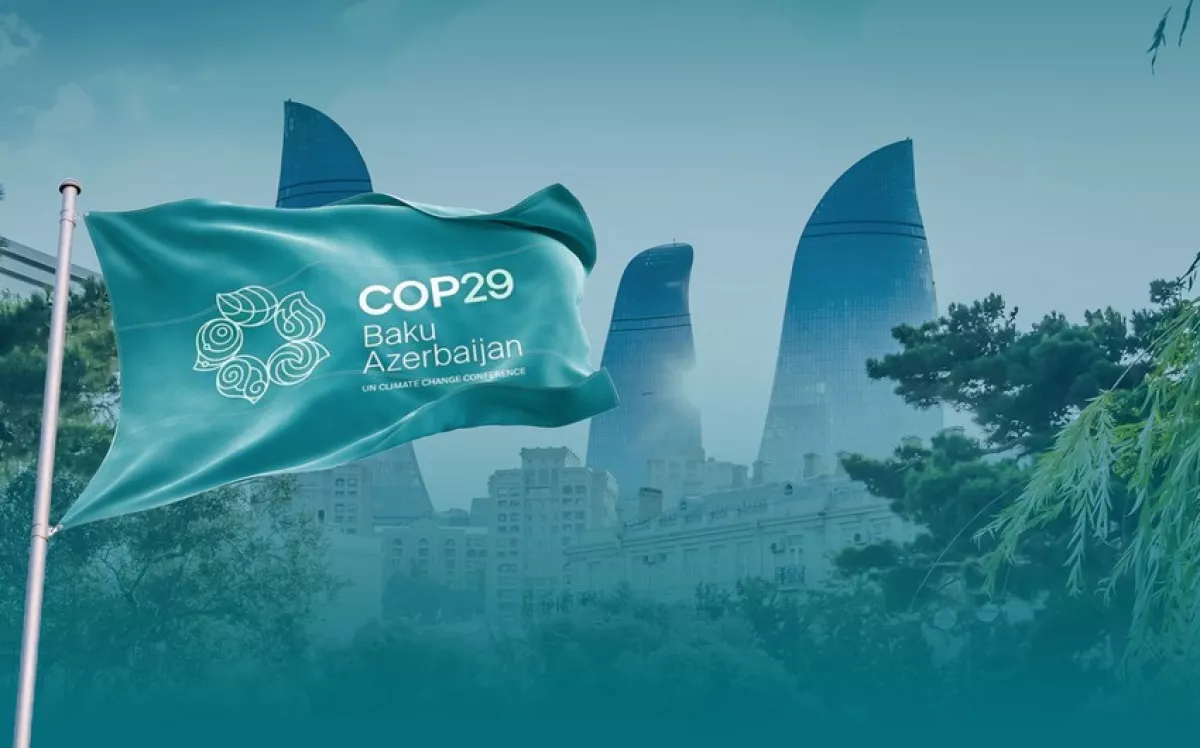COP29: Norway’s paradoxical stance on climate commitment Oslo vs Baku
A paradox has emerged: information has spread about Norway's refusal to participate in COP29 in Baku. Why is it a paradox? Because it is difficult to see the logic behind this decision by official Oslo, given its recent steps in relation to the climate summit in Baku.
On June 13, 2024, at the initiative of Norway's Minister of International Development, Anne Beathe Tvinnereim, a working lunch was held in Oslo dedicated to the Alliance of Champions for Food Systems Transformation (ACF), established based on a relevant statement from COP28, co-chaired by Norway. At the event, which was attended by representatives of relevant international organizations and ambassadors from respective countries, the Ambassador of Azerbaijan to Norway, Sweden, Finland, and Denmark, Zaur Ahmadov, shared detailed information about Baku's preparations for COP29, including specifics about the "Harmony" project aimed at enhancing efficiency in agriculture and food security through better coordination of platforms and partnerships.
On July 18, during a conversation with journalists at the IV Summit of the European Political Community in Oxford, Norwegian Prime Minister Jonas Gahr Støre described the holding of COP29 in Azerbaijan as “a very important follow-up.”
“We need to continue the transition, continue the commitments, take stock of what we do on technology and energy transition, and Norway will be very actively participating in that,” he stated.
Furthermore, in the last days of September 2024, the embassies of the Nordic countries launched the initiative "NORDIC TALKS: The Nordic Green Model" in Azerbaijan in collaboration with the local platform Kitabistan. The aim of this project was to share successful experiences from the Nordic countries in transitioning to renewable energy sources and addressing climate change.
At the exhibition-conference held as part of this initiative, experts from these four countries presented their models for a green transition. A panel discussion moderated by Kitabistan brought together the ambassadors of Denmark, Finland, Norway, and Sweden for a dialogue on best practices in promoting sustainability and energy efficiency. It was noted that the NORDIC TALKS project was also designed to establish a platform for "strengthening ties between the participating countries and Azerbaijan, fostering a collaborative approach to tackling the climate crisis."

Moving forward, we discover that a prominent Norwegian portal, businessnorway.com, features information titled "Join Team Norway at Norwegian Business Delegation to UN Climate Change Conference COP 29 2024." According to this announcement, Innovation Norway has formed a business delegation for COP29 with the objective "to position Norwegian businesses as key contributors to the COP29 ambitions and the Paris Agreement, attracting interest in Norwegian climate-friendly solutions and fostering partnerships to tackle climate challenges and advance the green transition."
The climate summit is described as " the premier forum for addressing the challenges and opportunities of the green shift, with the business community playing a crucial role by sharing expertise, experience, and solutions." With the growing interest in the climate conference from the business sector, COP has "evolved into a vital platform for establishing and developing partnerships, showcasing innovative climate solutions, and scaling up these efforts globally."
Furthermore, interested parties and organizations can review the requirements for those wishing to join the Norwegian business delegation. The selection process is expected to be rigorous, requiring candidates to provide "justifications for their participation" based on their specific activities in the stated area.
Regarding Innovation Norway, as specified on the company's website, it serves as "the Norwegian government's official trade representative abroad " and is its "most important instrument for innovation and development of Norwegian enterprises and industry."
Turning to recent developments, we find that just two days ago—on October 9—information emerged about negotiations between members of the South African and Norwegian governments concerning climate change mitigation during "informal consultations before and during COP29." Specifically, South Africa's Minister of Environment, Forestry and Fisheries, Dion George, and Norway's Minister of Climate and Environment, Tore O. Sandvik, "will be engaging with parties and all negotiating groups to conduct informal consultations on concrete issues" related to these areas.
So, do we need any additional comments regarding Oslo's refusal to participate in the climate conference in Baku being nothing short of a paradox? Moreover, this perspective can also be approached from another angle. First and foremost, it is worth noting that among Western European countries, Norway has the largest reserves of natural gas and oil. As experts emphasize, the contribution of the oil and gas industry to the country's GDP is equivalent to over 20%, while its share in export revenues is around 50%. Therefore, the foundation of Norway's present and future prosperity lies in its energy resources.
Interestingly, a few years ago, Norway proposed opening 125 new areas in the Barents Sea for drilling. So, why be surprised at the disregard for environmental issues when, at one time, official Oslo gave the green light to the mining company Nussir for copper ore extraction? It was projected that 2 million tons of waste, contaminated with heavy metals, would be discharged into the sea each year, despite the fjord's rich stocks of cod, Atlantic herring, halibut, and more. In early 2024, the Norwegian government received permission to dump mining waste into the fjords. Moreover, the court ruling in favour of the government required environmental advocates, represented by Friends of the Earth Norway and Nature and Youth (the plaintiffs in the case), to cover approximately £110,000 in legal costs.

Oil spill at the Statfjord field in the North Sea
In the context of this discussion, it is worth recalling the year 2023 when Prime Minister Støre, while highlighting Oslo's efforts to balance a green economy with mineral extraction, effectively acknowledged that Norway would confidently continue to extract its "black-blue gold" from its waters, regardless of environmentalists' concerns. In this context, Oslo urged energy leaders to intensify exploration for oil and gas in the Arctic, completely dismissing protests from environmental organizations.
However, Norway should not remain aloof in the fight for environmental purity, especially given its status as an Arctic state. It must make concerted efforts to address pressing issues such as glacier melting, which contributes to rising sea levels, and the pollution of Arctic waters with oil-related products, among other environmental challenges.
In 2019, when Norway was expected to begin acting in accordance with the Paris Agreement, the country's Statistics Bureau published information indicating that greenhouse gas emissions in 2018 amounted to nearly 53 million tons of carbon dioxide equivalent. This figure represented an increase of 200,000 tons (0.4%) compared to 2017, indicating not a reduction but rather a rise in emissions. Overall, it seemed as though the government was trying to comply with the Paris Agreement in a formal sense while making little to no substantial changes to its oil policy.
At the same time, Norway is making headlines for another reason, specifically regarding the construction of offshore wind farms on reindeer summer grazing lands. In this context, one reindeer herder described the destruction of "nature for the sake of climate" as "idiocy." Here, the term "paradox" can take on a different meaning. Regardless of this, it is essential for Norway to take an active role in international conferences focused on the most critical environmental issues of the time.
Officials in Oslo cannot ignore that climate change impacts the entire planet. Baku, in particular, is urging the world to set aside differences and ensure fair and ambitious financing for climate initiatives while adopting shared commitments to combat climate change. Azerbaijan, as the chair of COP29, is calling for urgent agreements on contributions to the Loss and Damage Fund and for significantly increasing contributions to the UN Green Climate Fund and the Adaptation Fund. Ultimately, the success or failure of COP29 will be a collective responsibility.
In reality, however, Oslo appears to be taking an anti-Baku stance, likely reluctant to commit to contributions. But is it Azerbaijan that stands to lose from this situation, rather than Norway?








